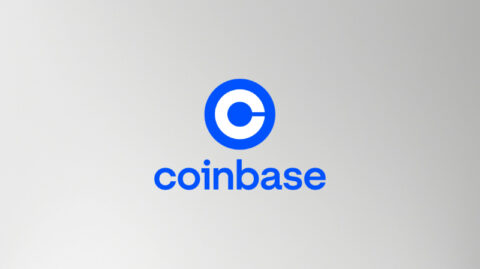With the rise of the cryptocurrency industry, new income-generating options that are specific to it have surfaced. Crypto mining is one of them. As participants engage their time, processing power, and money in protecting and verifying their chosen crypto network, they rise to the status of stakeholders on numerous blockchains.
There are various ways to get involved in the crypto-mining industry. You can choose to be hands-on or avoid the technical tasks required for successful cryptocurrency mining. This guide will concentrate on the latter. You can learn everything you need to know about cloud mining, often known as a hands-off approach to cryptocurrency mining, right here. But first, you should have a fundamental understanding of how crypto mining works in general.
What Is Crypto Mining?

Crypto mining is a series of activities aimed at securing a certain blockchain network in a decentralized manner. Miners validate transactions and jointly generate the supply of new coins through their operations.
A cryptocurrency miner is supposed to:
- Run a node on a blockchain network;
- Accomplish particular activities to identify a new block;
- Load new transactions onto the block;
- Guarantee that coins are not double-spent.
Following the conclusion of these operations, the blockchain network is designed to reward successful miners with new coins automatically. Proof-of-work (PoW) blockchains (blockchains that support mining) employ this as their principal distribution mechanism. It should be noted that the special work allocated to miners is determined by the type of PoW technique in use.
Before a new block can be found, the Bitcoin network and other blockchains that use the SHA-256 (safe hash algorithm 256-bit) mechanism require miners to compete to solve exceedingly difficult mathematical equations. This procedure necessitates a high degree of computer power, which means that miners who wish to succeed should be able to invest a specific amount of money in suitable hardware to ensure a lucrative mining business.
Also, blockchain networks are constructed in such a way that the mining difficulty is regularly adjusted to ensure that new blocks are found at a consistent frequency.
As a result, anytime the number of mining nodes on a given network or the computational power of its existing mining nodes increases, so does the network’s mining difficulty. In the opposite instance, the network self-adjusts to make the SHA-256 equation easier to solve. Aspiring miners, in most circumstances, must invest in specialized and powerful mining rigs to even have a chance of being profitable.
With that in mind, becoming a successful crypto miner necessitates the following:
- Invest in high-performance mining equipment. A competent piece of mining hardware can cost up to $8,000, and one rig is insufficient for a profit-seeking miner.
- Developing the coding and technical skills required to run a full node on a blockchain network.
- The cost of running and cooling mining rigs over the clock can eat into miners’ income. To limit the amount of electricity required to cool mining hardware, miners should use a low-cost power source or locate in colder climes.
To sum up, an independent crypto miner needs to be technically adept, as well as have the dedication and resources to succeed. Since not all cryptocurrency miners are able to meet these demands or grow them further, less hands-on mining solutions present workable substitutes. Here is where cloud mining comes into play.
What Is Cloud Mining?

Cloud mining should be simpler now that you are familiar with the fundamentals of crypto mining. The act of employing cloud computer resources to mine cryptocurrency is known as cloud mining, as the name suggests. In this situation, you pay other parties to complete the job on your behalf. In essence, you don’t have to invest in or maintain specialized mining equipment or manage a blockchain node.
Participants in cloud mining often either rent hash power or mining machines. The latter gauges a mining rig’s power and is often calculated in units of Gh/s and Th/s. Users can purchase or rent a portion of the hash power generated by the cloud mining provider’s facility or farm, which is home to numerous mining machines.
The cloud mining service provider must have made investments in the best mining equipment and, ideally, set up a shop in a region with access to cheap electricity and a temperate environment. This strategy guarantees that the farm’s operating expenses are kept within a reasonable range.
Such a strategy is perfect for those who don’t want to become involved in the technical aspects of cryptocurrency mining. Most of the time, users can use their cell phones to monitor their hash rate and cloud mining earnings. Some cloud mining configurations even instantly shift the generated hash power to the most lucrative coin that is currently mineable.
Different Types of Cloud Mining Models
Host Mining
Host mining involves leasing or buying rigs for use on mining farms. In this case, you may have to pay for the rig’s setup and upkeep. The advantage of this arrangement is that it frequently minimizes the overhead expenses associated with adequate electrical access. You also have more control over your leased rig(s) and can opt to send the generated hash power to mining pools to increase your chances of finding a new block. Finally, because you just need to cover the cloud mining service’s setup and maintenance costs, you have total control over the money you generate.
Lease Hash Power
Unlike host mining, leasing hash power entails leasing a portion of the hash power generated by a mining farm. You will not be charged any maintenance or setup costs here. You merely need to sign up for a plan to receive a portion of the farm’s profits. The revenue created when the farm finds a new block and receives cryptocurrency as payment is split among users according to their collective share of hash power.
What Are the Benefits and Drawbacks of Cloud Mining?
Cloud mining is an excellent option for people who wish to reap the financial rewards of mining without having to cope with the technical and hardware requirements stated earlier in this book. The operational costs of a mining machine may be decreased with the use of cloud mining.
However, there are several potential negatives to consider before deciding on a cloud mining methodology. The first is the prevalence of fraud in the cloud mining industry. Over time, the industry has become a breeding ground for fraudulent operations. Because investors may not have the opportunity to inspect the mining farms in person, it may be difficult for them to verify the cloud mining provider’s claims.
Some cloud mining companies also run pyramid schemes in which early investors are compensated with deposits from new investors. Knowing that this cannot be sustained, providers inevitably resort to exit schemes. As a result, it is your responsibility to conduct a due investigation before selecting a particular cloud mining service. You should read reviews, look into the platform’s credibility on crypto forums, examine withdrawal limits, and avoid offers that seem too good to be true.
Another aspect to consider is the possible profitability of the offering. You may incur losses if the price paid to lease, buy, or operate cloud-based rigs does not correspond to the hash power delivered. Before committing to a cloud mining offer, carefully consider the mining capital and prospective earnings.
Finally, avoid cloud computing systems that have total control over your earnings. When it comes to your crypto wallet, it is best to go with those that give you some control.
What Are the Best Sites for Cloud Mining?
You must make intelligent investments when researching cloud mining suppliers. You should conduct an extensive study before participating in cloud mining because there are many con artists and schemers on the internet attempting to take advantage of others. Watch out for businesses that advertise no costs and exorbitant returns.
The good news is that there are a handful of reputable cloud mining services that have existed for a long and established a solid reputation. These businesses include, among others, Genesis Mining, Gminers, and ECOS. Nevertheless, don’t put all of your financial choices on a single source. Make your own independent research.
When investigating cloud mining sites, consider the contracts they provide, paying close attention to the mining difficulty and hash rates. Use online tools like TrustPilot to look up reviews of any cloud mining platforms you become interested in. Read evaluations and talk to people who have already invested in these mining sites on Reddit forums. Additionally, find out how long they have been in business; the longer, the better. Giving money to a cloud mining company right away may not be a good idea if it has recently been on the scene. Attempts at cloud mining can be hazardous, so be on the lookout and, whenever in doubt, err on the side of caution.
Conclusion
Cloud mining in cryptocurrency refers to a method where individuals or companies rent computing power and resources from remote data centers to mine cryptocurrencies. It offers a more accessible and user-friendly way to participate in mining without the need for expensive hardware and technical expertise. While cloud mining can be convenient, potential investors should exercise caution due to the prevalence of scams and the inherent risks involved. Conducting thorough research and choosing reputable cloud mining providers are crucial steps to minimize potential pitfalls and ensure a more successful mining experience.
FAQs
Q. Is cloud mining profitable?
A. Cloud mining profitability depends on various factors, such as the cryptocurrency’s price, mining difficulty, maintenance fees, and contract terms. It is essential to calculate potential returns and consider market conditions before investing in cloud mining.
Q. What are the risks of cloud mining?
A. Cloud mining carries risks such as potential scams, contract termination, and lack of control over mining operations. The market’s volatility can also impact mining profitability, affecting potential returns.
Q. How do I choose a reliable cloud mining provider?
A. When selecting a cloud mining provider, research the company’s reputation, user reviews, and track record. Look for transparency in fees, contracts, and terms of service. Avoid providers making unrealistic promises or guaranteeing fixed returns.
Q. Can I mine any cryptocurrency through cloud mining?
A. Cloud mining options vary, and not all cryptocurrencies are available for cloud mining. The most commonly supported coins include Bitcoin, Ethereum, and other popular altcoins.
Q. What are the alternatives to cloud mining?
A. Alternatives to cloud mining include traditional mining with your hardware, staking, and participating in cryptocurrency investment or trading. Each method comes with its own set of risks and rewards.











